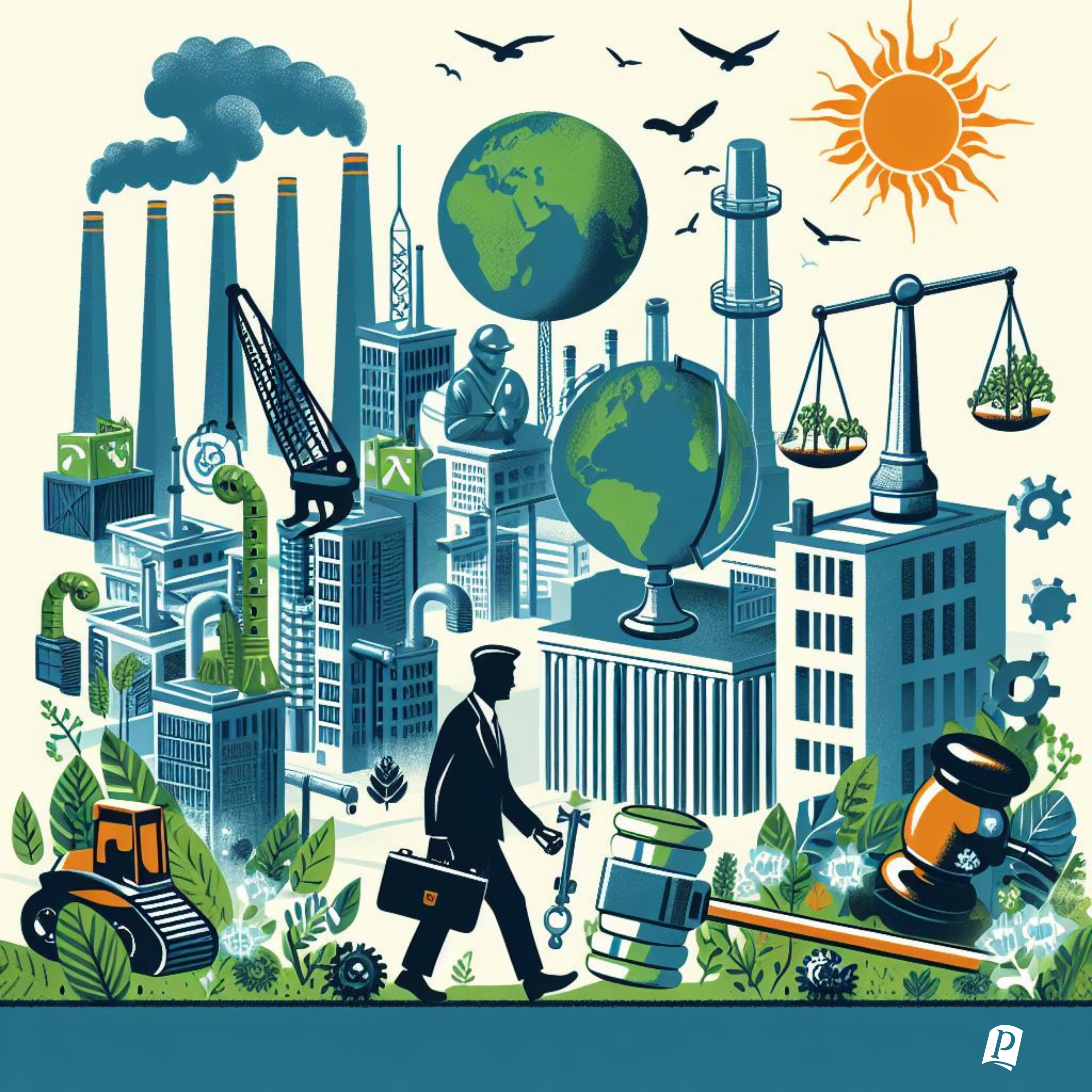Climate change is an urgent reality that requires immediate and strategic action, particularly in countries like Bangladesh, where environmental vulnerability and socio-economic challenges necessitate adaptation. The intersection between climate change and labour is a crucial issue that needs attention in Bangladesh and worldwide. Changing labour laws to maximize job opportunities in sustainable companies and safeguarding workers in sectors impacted by environmental rules is becoming increasingly essential.
Bangladesh, a country acutely vulnerable to climate change due to its geographical location, is grappling with significant challenges such as escalating sea levels, frequent cyclones, and devastating floods. These environmental issues alter the physical landscape and disrupt the socio-economic structure, particularly the labour market. It is of utmost importance for Bangladesh to swiftly transition to sustainable job opportunities and adapt labour regulations to protect its vulnerable workforce, thereby strengthening its stability against climate-induced misfortunes.
Countries worldwide increasingly recognize and address the connection between labour policies and climate change adaptation. The European Union has actively incorporated climate change concerns into its labour laws by emphasizing the development of environmentally friendly occupations and guaranteeing a fair shift for employees transitioning from high-carbon to low-carbon industries. Canada’s strategy involves modifying labour regulations to support employment in sustainable sectors and offering retraining initiatives for workers moving from ecologically harmful businesses.
Bangladeshi labour regulations have historically focused on current socio-economic matters rather than placing significant importance on the future consequences of climate change. Recognizing the necessity, there has been a gradual shift towards incorporating environmental factors into labour policies. The difficulty is in implementing thorough and practical guidelines, considering Bangladesh’s economic and ecological circumstances.
According to the International Labour Organization (ILO), implementing sustainable practices could create 24 million additional jobs worldwide by 2030. Renewable energy in Bangladesh can create jobs with the right policies. It can also reduce the carbon footprint and boost the economy, creating sustainable employment. Collaboration is needed to pave the way for a greener future. Adapting labour rules to promote green jobs is an environmental necessity and an economic opportunity that should be seriously considered.
Ensuring the welfare of workers in sectors impacted by environmental legislation is a significant concern. The agriculture industry in Bangladesh, a major employer, is particularly vulnerable to climate change. It is essential to enact legislation that safeguards the rights and livelihoods of these workers, providing them with options for alternative employment, insurance, and training in sustainable farming practices.
Bangladesh has taken significant strides in integrating climate change adaptation and mitigation strategies within its legal and regulatory framework. The Bangladesh Labour Act of 2006 and the Bangladesh Environment Conservation Act of 1995 are central to this effort. These pieces of legislation and the Bangladesh Climate Change Strategy and Action Plan (BCCSAP), 2009, form the backbone of the country’s approach to addressing the nexus between climate change and labour.
The 2006 Bangladesh Labour Act establishes worker protection and occupational safety regulations that are essential under changing environmental conditions, but do not explicitly address climate change. With climate change threatening heatwaves and air quality, Section 89 (Health and Hygiene) requires businesses to provide clean workplaces. For personnel working outdoors or in climate-vulnerable sectors like agriculture and construction, Section 91 (Safety) requires safety precautions. Although unrelated to climate change, these provisions are necessary for adjusting labour practices to protect workers from environmental threats.
The 1995 Bangladesh Environment Conservation Act promotes a safer and healthier workplace for workers. Section 4 states that the government can identify ecologically critical zones that restrict where and how industries operate, affecting labour practices and ensuring that enterprises reduce environmental destruction.
The BCCSAP provides a comprehensive climate action framework for labour and other sectors but is not a law. It promotes resilience and adaptability in climate-vulnerable communities and the workforce. Bangladesh Climate Change Strategy and Action Plan (BCCSAP), 2009, encourages policy integration to protect worker health and safety from climate hazards.
Labour legislation in Bangladesh and worldwide must account for the rights and safeguards of individuals in informal employment who are particularly susceptible to the effects of climate change. This is a reference to the numerous workers whom climate change has a direct impact on in Bangladesh’s coastal regions. Legal frameworks should encompass not just formal employment sectors but also provide safeguards and adjustments for informal workers.
When comparing different countries, it is evident that some have made significant strides in adapting their labour laws to address climate change, while others, like Bangladesh, are just beginning this process. The diversity of approaches offers valuable insights into the complexity of making labour laws adaptable to environmental needs. Bangladesh should consider adopting regulations like those in the EU and Canada tailored to its socio-economic and ecological conditions. This approach, which includes education, training, and social security measures for impacted workers, could be a viable solution for Bangladesh’s unique circumstances.
Ultimately, adjusting labour laws to address climate change is a policy obstacle and a moral need. Countries like Bangladesh face significant consequences due to the interrelationship of climate change with their population’s economic and social conditions. Developing sustainable job possibilities and safeguarding people in at-risk industries are crucial elements of a comprehensive approach to addressing climate change. Collaboration among governments, the corporate sector, and international organizations is necessary to guarantee that labour rules adapt to climate change’s environmental and economic impacts. To move forward, we must modify current laws and rethink labour policy to establish a sustainable and inclusive future for all workers, regardless of their industry or job status.








